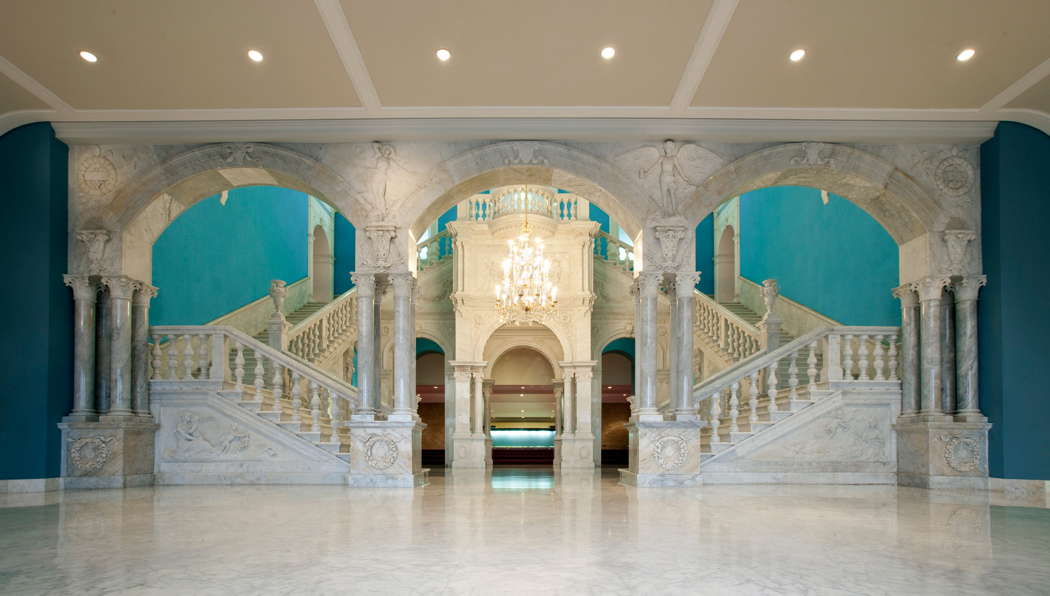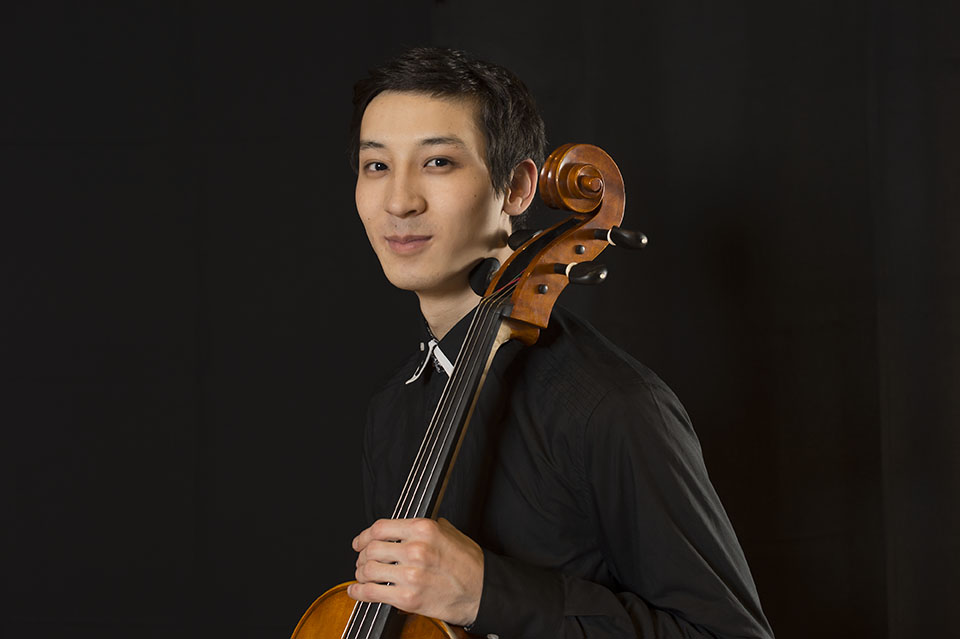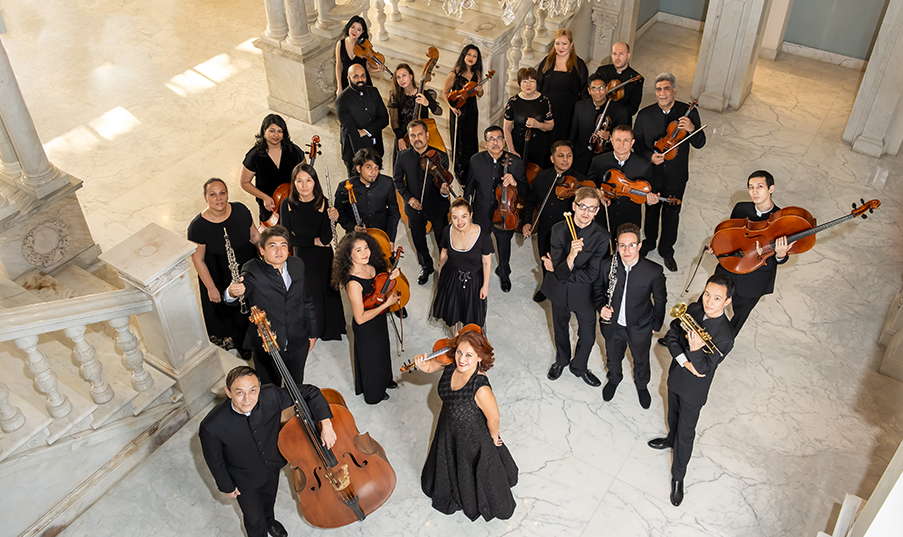- Gwendolyn Avril Coleridge-Taylor
- Jean-Baptiste Lully
- Texas
- Marina Koshetz
- Georges Enescu
- Herbert Blomstedt
- Donald Nally
- Daniel Lippel: Dystopian Reprise
 DISCUSSION: John Dante Prevedini leads a discussion about Composers, individuals or collective?, including contributions from David Arditti, Halida Dinova, Robert McCarney and Jane Stanley.
DISCUSSION: John Dante Prevedini leads a discussion about Composers, individuals or collective?, including contributions from David Arditti, Halida Dinova, Robert McCarney and Jane Stanley.
 DISCUSSION: What is a work? John Dante Prevedini leads a discussion about The performing artist as co-creator, including contributions from Halida Dinova, Yekaterina Lebedeva, Béla Hartmann, David Arditti and Stephen Francis Vasta.
DISCUSSION: What is a work? John Dante Prevedini leads a discussion about The performing artist as co-creator, including contributions from Halida Dinova, Yekaterina Lebedeva, Béla Hartmann, David Arditti and Stephen Francis Vasta.
Winningly Interpreted
In his first report for Classical Music Daily, FAREED CURMALLY describes a magical afternoon of orchestral music in Mumbai
On 31 October 2021 the curtain went up for the first time in nineteen months at the NCPA. Mumbai's thriving classical music community returned in droves to a sell-out concert given by the Chamber Orchestra of the Symphony Orchestra of India. This was a momentous occasion eagerly awaited by both young and old and still with serious government restrictions affecting all those attending. Entry was limited to those having proof of double vaccination and seating restricted to 50% capacity with alternate seats empty. In accordance with guidelines wearing of masks during the whole performance was compulsory and again with cognizance to similar performances across the world the duration was limited to less than an hour and a half with no intermission.

Mumbai's National Centre for the Performing Arts (NCPA). Photo © 2015 Fram Petit
There was a palpable air of expectation in the busy hall, with animated discussions among fellow music lovers meeting after such long months of silence. Some regulars were conspicuous by their absence, pleading sick or worse. In normal times the Tata theatre shares its home to all manner of concerts, recitals and classic rock shows, jazz, visiting orchestras, theatre and dance. The imposing but not much bigger Jamshed Bhabha theatre doubles as an Opera House. Symphony Orchestra of India seasons occur twice in the year first in September and then the next February. Each season comprising five or six concerts occur within three weeks of the months concerned. Showcasing the newly formed Symphony Orchestra each season shows off its best talent in two or three concerts containing a concerto and a symphony. Past soloists have included top international virtuosos like Maria João Pires, Stephen Kovacevich, Barry Douglas, Tamás Vásáry, Renaud Capuçon and Augustin Dumay. Among the stellar names on the podium have been Charles Dutoit, Martyn Brabbins, Carlo Rizzi, Yuri Simonov, Adrian Leaper and Alexander Anisimov.
The SOI was formed as a cultural and diplomatic partnership between India and Kazakhstan in 2006. Chairman of the NCPA - the National Centre for the Performing Arts, Mumbai, not to be confused with the similar named NCPA in Beijing - Mr Khushroo Suntook co-founded the orchestra with the help of violinist Marat Bisengaliev, who is also the orchestra's Music Director. Zane Dalal was appointed Associate Music Director in 2014, promoted to the job after seven years as Resident Conductor. Ensuing Resident Conductors have included Peter Borkowski, Evgeny Bushkov and Mikel Toms. The orchestra's core group of musicians is resident all year round and forms the SOI Chamber Orchestra.
With a large proportion of attendees normally visiting the NCPA already double vaccinated, it was prudent to start to reopen the doors to indoor events. With the third wave seemingly averted, the local municipal government decided to leave lockdown restrictions to the past. Whereas events like concerts and opera are considered super spreaders in the West, the picture is a little different in multicultural India. It is here that religious festivals are celebrated with the same impunity as large-scale mega-sized games and sports events.
As I write I am pleased to report that one month on from emerging from a curfew as well as a total ban on the use of theatres since the second wave hit India in spring of this year, we are happily well into the 21/22 season. The ban on theatres was lifted on 22 October. This concert occurred on Sunday 31st. After which came a week-long nationally celebrated series of holidays associated with the Indian New Year, the festival of lights also called Diwali. This could have been a super spreader event; however two weeks on we have still averted a third wave while many other countries are already grappling with a fourth.
Minutes after 5pm came the moment of truth that we were all waiting for. The orchestra rose handsomely to the challenge. Clearly judging from the applause, the audience approved every step of the way. From the beginning with baroque music and ending with Rossini it proved an evening of light classics winningly interpreted.
J S Bach wrote six Brandenburg Concertos each for a collection of several instruments some featuring solos or instruments in combination dedicated to Christian Ludwig, Margrave of Brandenburg. They are widely loved and highly regarded as some of the best orchestral compositions of the Baroque era.
Bach had at his disposal exactly seventeen soloists. The overall forces required every one of the six concertos setting a precedent in scoring exactly tallying with that number. No 3 in G major, BWV 1048, was written for three groups of string instruments: three violins three violas and three cellos with harpsichord continuo. Using modern instruments at Baroque pitch with historically informed period practice, the performance was light and airy rather than excessively incisive. Presenting a warm tone, there was no lack of polish or gloss. In the wonderfully inflected exchanges between the three solo groups, the central movement consisted of a short cadenza for continuo bridging the outer fast movements. If any criticism can be levelled, it is that the two outer movements would have benefited from a more measured pace. Entries were sometimes untidy and the end rather perfunctory.
The next major work on the programme was Haydn's Cello concerto No 1 in C major, Hob VII B/1. Although an early work and written specifically for a friend who played principal cello in Nicolas Esterhazy's orchestra, this presumably original work was considered lost until it turned up as a copy at the Prague National Museum in 1961. More popular than the much later composed D major cello concerto (No 2) this refreshing early work has its roots in the Baroque concerto grosso with a small accompanying orchestra. It also reflects the emerging sonata-allegro form of the early Classical style. Soloist Salauat Karibayev, principal cellist of the chamber orchestra, emerged victorious from this virtuoso vehicle with plangent tone and sensitive nuances. There was no lack of virtuosity in the characteristic scales and broken chords with impeccable intonation across the whole range of the instrument. This was a veritable tour de force, the cellist being roundly applauded for his astonishing performance. Cellist Karibayev is Kazakh and young beyond his years. Mumbai is lucky to have him, at least for the moment.

Salauat Karibayev
Although announced in the programme, the Vivaldi concerto for four violins - yes the famous one - was dropped at the last minute on account of the sudden indisposition of one of the soloists. It is hoped that it would be played at some later date.
The final work in the programme was Rossini's String Sonata No 3 in C. Called the Italian Mozart these are the earliest known works of the twelve-year-old boy composer scored for two violins, a cello and a double bass. They are sometimes played as a string quartet. The string sonatas are short, lively and very tuneful - clearly the output of a prodigy who went on to produce his world-famous opera buffa in his twenties. By the age of thirty-four he had written thirty-one operas. At age thirty-seven he decided to retire, living between Italy and Paris.
The classical form of the sonata is typified in this piece: fast-slow-fast. The first movement states a catchy tune with little development. The slow movement sports a lovely violin obbligato solo. The last movement is a mini-theme and variations superbly played. It brought a magical afternoon to a fitting conclusion.

The SOI (Symphony Orchestra of India) Chamber Orchestra
Spoiler alert: The second SOI chamber orchestra event did occur as scheduled on 14 November 2021, again at 5pm. Watch this space for a full report and blow by blow account. They did indeed perform Vivaldi's concerto for four violins.
Copyright © 21 November 2021
Fareed Curmally,
Mumbai, India

CLASSICAL MUSIC ARTICLES ABOUT MUMBAI
CLASSICAL MUSIC ARTICLES ABOUT INDIA


